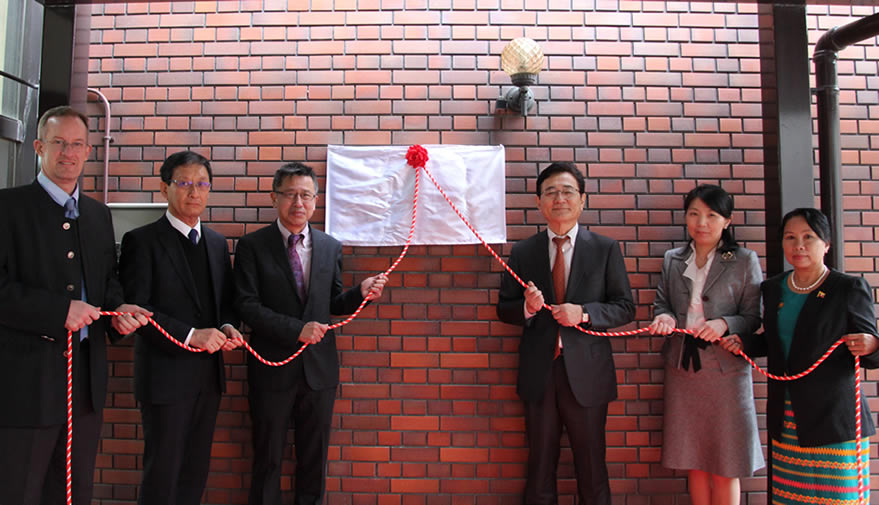As of January 1, 2017, Center for Southeast Asian Studies (CSEAS) merged with the Center for Integrated Area Studies (CIAS) and restarted as a new research center. Its Japanese name slightly changed to Tonan Ajia Chiiki Kenkyu Kenkyusho, but the English name remains unchanged.
CSEAS was established in 1963, charged with coordinating Southeast Asian Studies, and officially approved as the first university-attached research center in 1965. For over 50 years it has carried out multidisciplinary fieldwork in the region. Due to the efforts of previous and current faculty, affiliated researchers and related agencies, CSEAS has grown to become a leading global research institute. Since 2006, CIAS also carried out extensive research through a fusion of Area Studies and Informatics, fostering both area studies communities and putting efforts into building an Area Informatics system.

Fig.1 At the opening ceremony: From Left to right, Assoc. Prof. Nathan Badenoch, Prof. Hara Shoichiro, Dir. Kono Yasuyuki, Prof. Nagahiro Minato
(Executive Vice-President of Kyoto University), Assit. Prof. Shitara Narumi, Assoc. Prof. Myint Thida (Visiting Research Scholar)
The aim of this reorganization is to bring together our strong fieldwork expertise, interdisciplinary areas studies and area informatics approaches to allow us to have a broader perspective, develop a larger academic network, and strengthen research that responds to the needs of contemporary societies. We are now coming to the end of an era that has solely pursued industrial expansion and economic growth. Present day societies face complexly intertwined problems that threaten our security; global environmental issues, economic inequality, religious and cultural friction, large-scale natural disasters, and the spread of epidemics. CSEAS aims to continue world-class research to close in on these issues by making use of the wisdom found in local societies in the world in general, and of Southeast Asia in particular, and weave together reality-based and globally comparative perspectives.
To do this we require a diverse disciplinary mix. To produce any kind of innovative ideas we also need to work with civil society and the private sector. These require a wide range of people and our own efforts. CSEAS will continue to look forward to working closely at all levels to further solutions to current and near-future regional and global issues.
